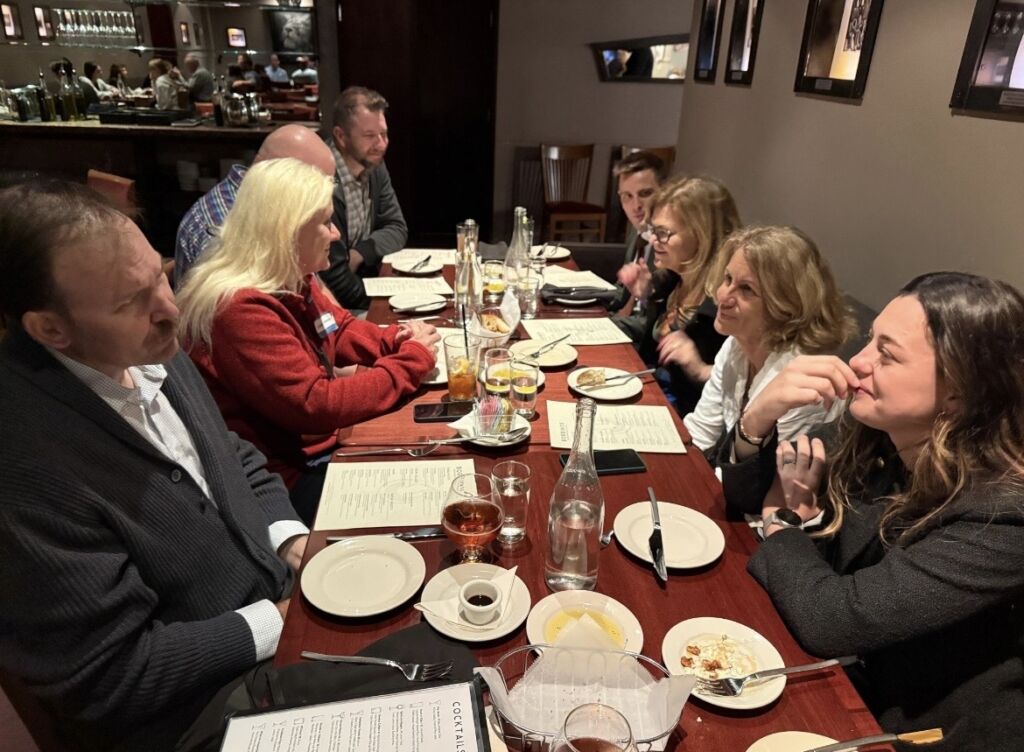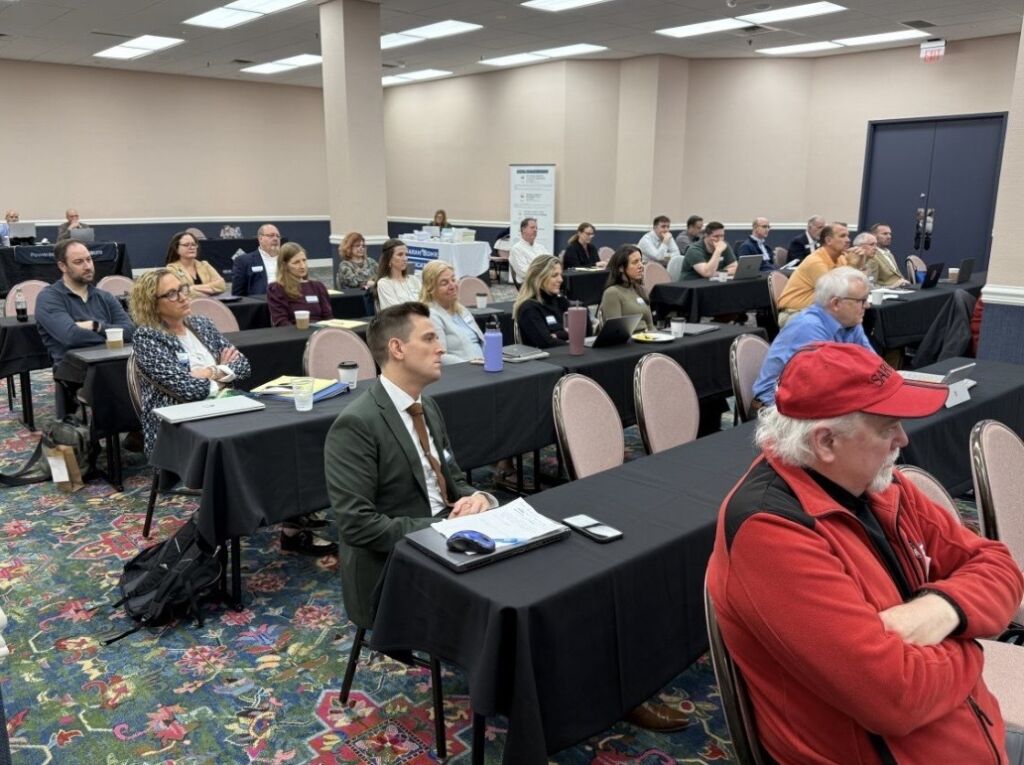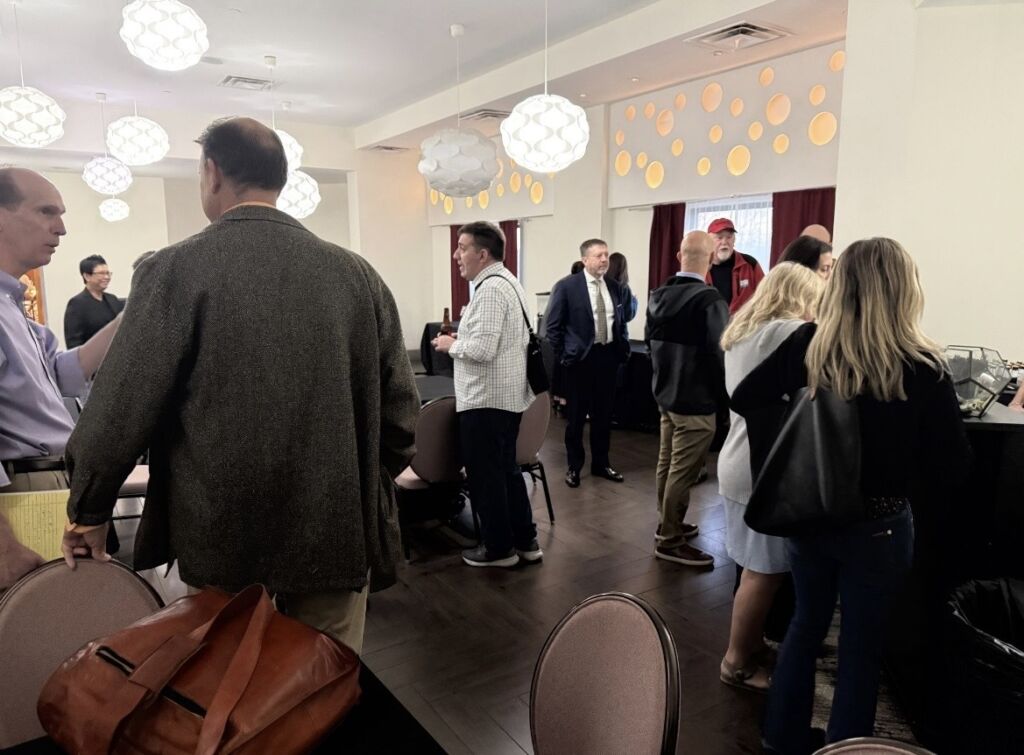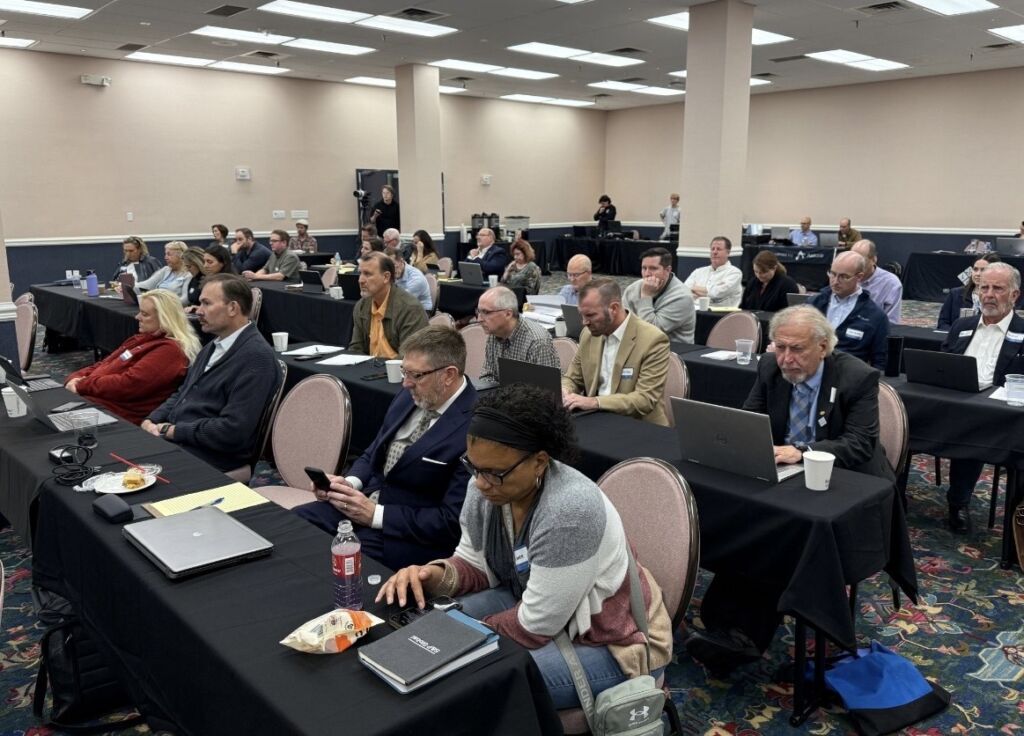
8th Circuit NOSSCR Conference Recap
November 21, 2024
Meghan Gallo, NOSSCR Sustaining Member
For the first time in ages (I never did pin down exactly how long), the 8th Circuit Social Security Disability Conference returned to my home state of Arkansas. Supported by Welcome Sponsor Assure Disability, this year, the event kicked off in the scenic city of Fayetteville, nestled at the base of the Ozark Mountains. Sidebar: being originally from a place with mountains, I’d call these more “rolling hills,” but they’re beautiful nonetheless.
The conference began on November 7th, just as many of us were still digesting the results of the election. Despite the timing, nothing could dampen the enthusiasm for what turned out to be a jam-packed two days of discussions on regulatory changes, vocational methodologies, consultative examiner fraud, and AI. To the uninitiated, these topics may sound dry, but as the NOSSCR readership knows, this has been a landmark year for disability law—and for our clients.
Day One Highlights
Day one opened with a lively panel discussion featuring myself (Meghan Gallo), Tom Krause, John Lander, Ashley Loy, and Marcus Vaden. The conversation was so dynamic it could have easily filled the entire conference, as the panelists explored their differing approaches to essential day-to-day practices. Topics ranged from office procedures and managing client expectations to streamlining intakes and preparing for hearings, offering a practical and candid look at how we each tackle the challenges of serving our clients effectively.
Next, NOSSCR CEO David Camp delivered Policy and Advocacy updates, a session dedicated to the impressive milestones and promising initiatives spearheaded by NOSSCR leadership. The list of accomplishments was so extensive the schedule gracefully expanded to accommodate the wealth of updates; a testament to the incredible progress being made on behalf of attorneys practicing SSA law and the disabled community at large.
The morning wrapped up with two vocational presentations that offered practical and insightful strategies for tackling common challenges in our field. Hudson Ellis provided instructive advice and methods for attacking transferability of skills evaluations, while I presented my own analysis of VE testimony, examining it against the backdrop of SSA’s countervailing scientific integrity policy.
After enjoying a convenient box lunch sponsored by Brown, Curry, & Duggan, and spirited conversations with colleagues, the afternoon resumed with Professor Jon Dubin presenting on the history of Social Security Disability and the American labor market. His thought-provoking discussion, titled after his book Social Security Disability and the American Labor Market, delved into the implementation of the GRID rules and their sometimes surprising, if not eye-opening, outcomes. This was followed by Kyle Sciolaro’s aptly named session, Prepopulated Poppycock, where he discussed his continued pioneering work combating generic, low-quality, and sometimes fraudulent consultative examinations.
The day ended with Hudson Ellis offering insights into handling ERISA and LTD claims. This was followed by Nick Coleman’s engaging talk on AI, where he not only explored how SSA uses it but also provided a wealth of materials to help attorneys navigate the array of AI options available. He offered practical insights on leveraging these tools effectively while avoiding potential pitfalls. Finally, the day closed on a celebratory note as happy hour was in fact two hours–thank you to The Federal Appeals Firm!
Day Two Highlights
Day two kicked off with retired ALJ Don Curdie, who graciously shared his perspective on disability claims and fielded audience questions. Following this, the Magistrate Panel featuring the Honorable Christy Comstock and Honorable Mark Ford of the Western District of Arkansas offered valuable insights into federal disability appeals, rounded out by ACALJ Jay Ortiz with updates from SSA.
A standout presentation came from Dr. Daniel Young, whose discussion on hospital superbugs—complete with captivating visuals—held everyone’s attention. He provided a sobering look at how complications from seemingly minor procedures can lead to long-term disabling conditions and repeated hospitalizations.
After a hot lunch sponsored by the 8th Circuit Conference Committee (and more camaraderie), the afternoon began with Eighth Circuit guru E. Gregory Wallace. He provided practical advice for screening cases for the 8th Circuit, though the resounding takeaway was, “don’t go there.” Still, for those reckless brave enough to venture there, Wallace shared invaluable tips on what to watch for.
Tyler Coe followed with an insightful session on attorney wellness, emphasizing that when work-life balance feels unattainable, work-life integration may be the key to managing stress and finding fulfillment both professionally and personally. Wes Kappelman then closed the formal presentations with an update on 8th Circuit case law. His sobering bar graph on claimant-friendly decisions in the 8th Circuit over time reinforced the “don’t go there” mantra, though he offered a glimmer of hope for those with the right case before the right panel.
The conference wrapped up with a spirited game of SSA Jeopardy, which saw a level of competitiveness befitting a room full of attorneys. It was a perfect way to end two days of learning, camaraderie, and renewed dedication to the fight for our clients. A big shout-out to our amazing sponsors: Assure Disability, Brown, Curry, & Duggan, the Eighth Circuit Planning Committee, Legal Conversion Center, and The Federal Appeals Firm. And to our exhibitors, Assure Disability, Brown, Curry, & Duggan, Legal Conversion Center, Sarah Bohr, and Superinsight–thank you for sharing your valuable resources. We appreciate your support of NOSSCR and our mission!
This is a guest column. The views expressed in this column are the views of the author alone, and do not represent the views of NOSSCR, NOSSCR’s leadership, or NOSSCR’s staff.









